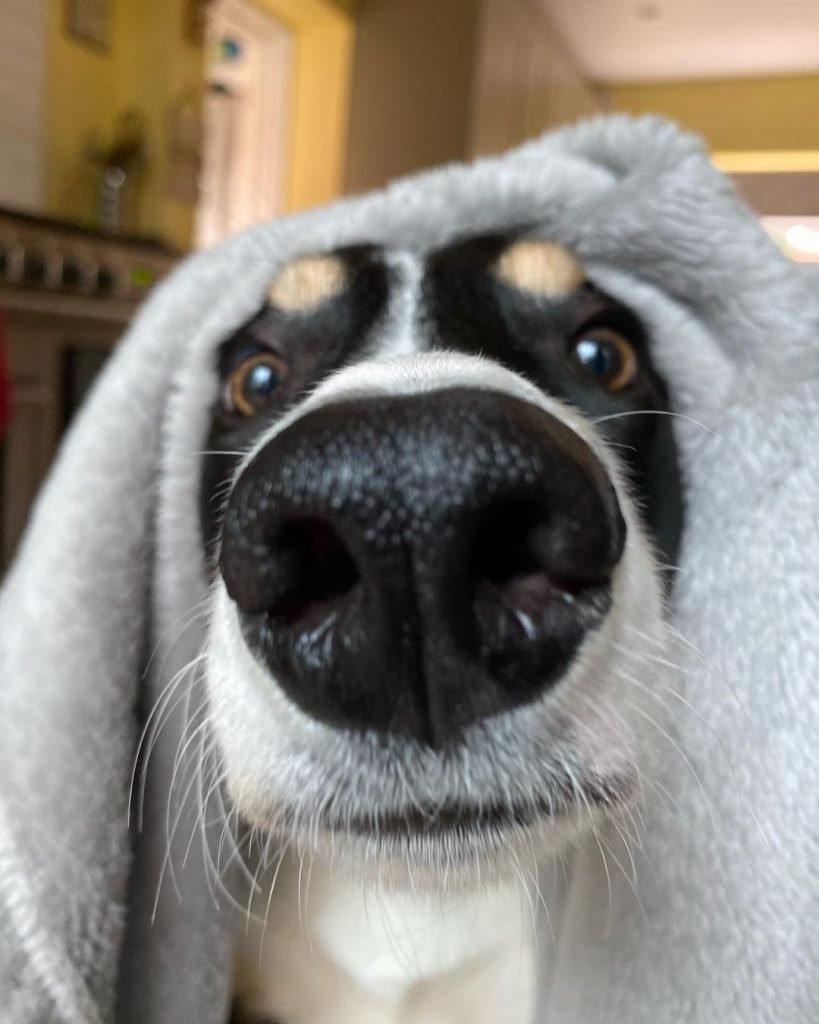A Border Collie is a bit like that head boy or girl at school who was (infuriatingly) good at everything!
A sensitive, highly intelligent and agile breed that that would have traditionally worked as a herder and a working dog, The Border Collie often performs other roles. These include search and rescue operations, and detective. However, not only is this breed known for brains (often topping the canine list of smartest dogs), it frequently wins sporting awards in agility, obedience, and work trials.
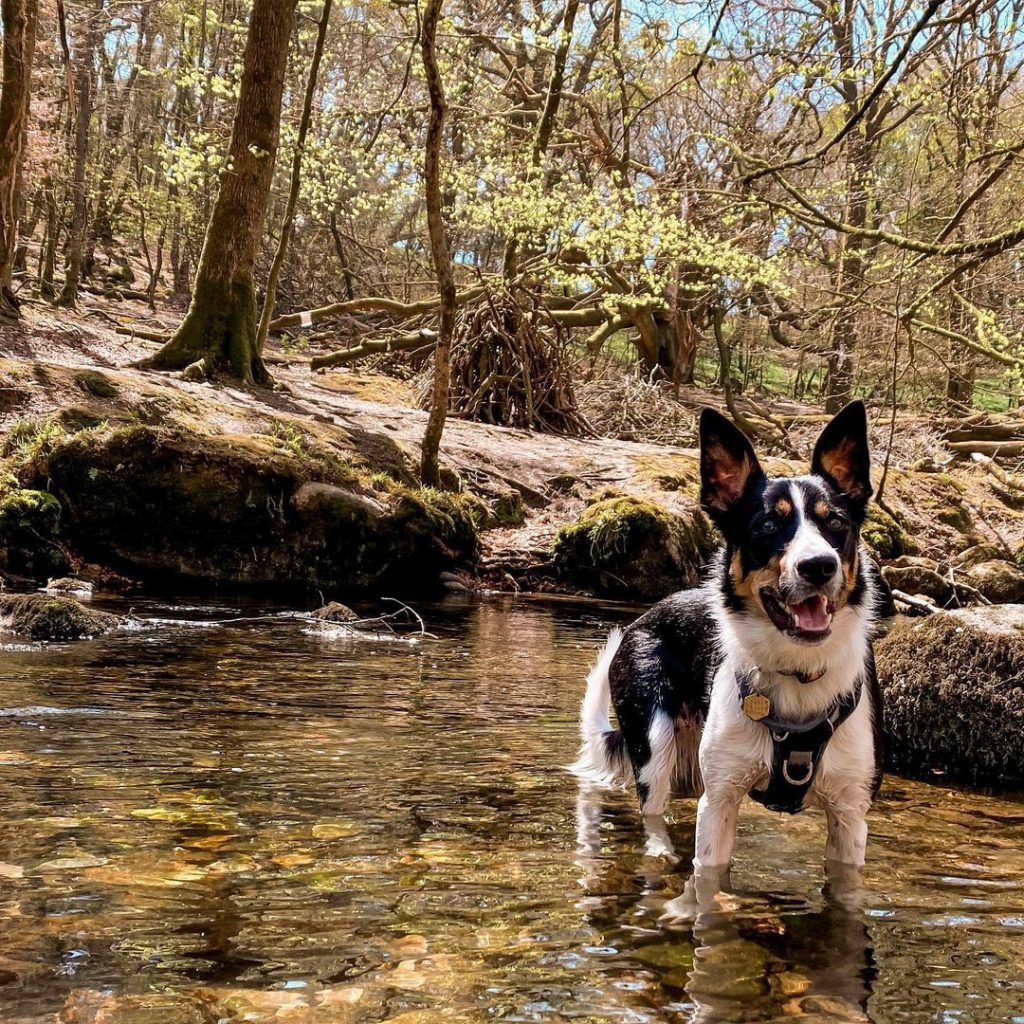
Border Collies also make great family pets, but they require an active lifestyle to be happy and remain healthy. This means making sure they have stimulating tasks to keep them occupied, as well as owners who have both time and vitality.
The pathway for this is in regular training for a Collie from puppyhood. Activities can be interactive, playful, and reward-based - preferably in an outdoor environment. Games which involve learning tricks with the help of clickers, are great ways to train your Border Collie. We hope this post provides you with a good overview on how to get a fresh faced pup on the road to being top of the class.

Border Collie temperament
Border Collies seem to have it all: they are bright, willing to work and most people find them aesthetically pleasing. It is no wonder they are so popular.
Originally from the England / Scotland border, hence their name. At first they were used as herding dogs to aid farmers, and often lived in tough farm conditions. This helps account for their hardiness, and also a Border Collie’s need to be busy.
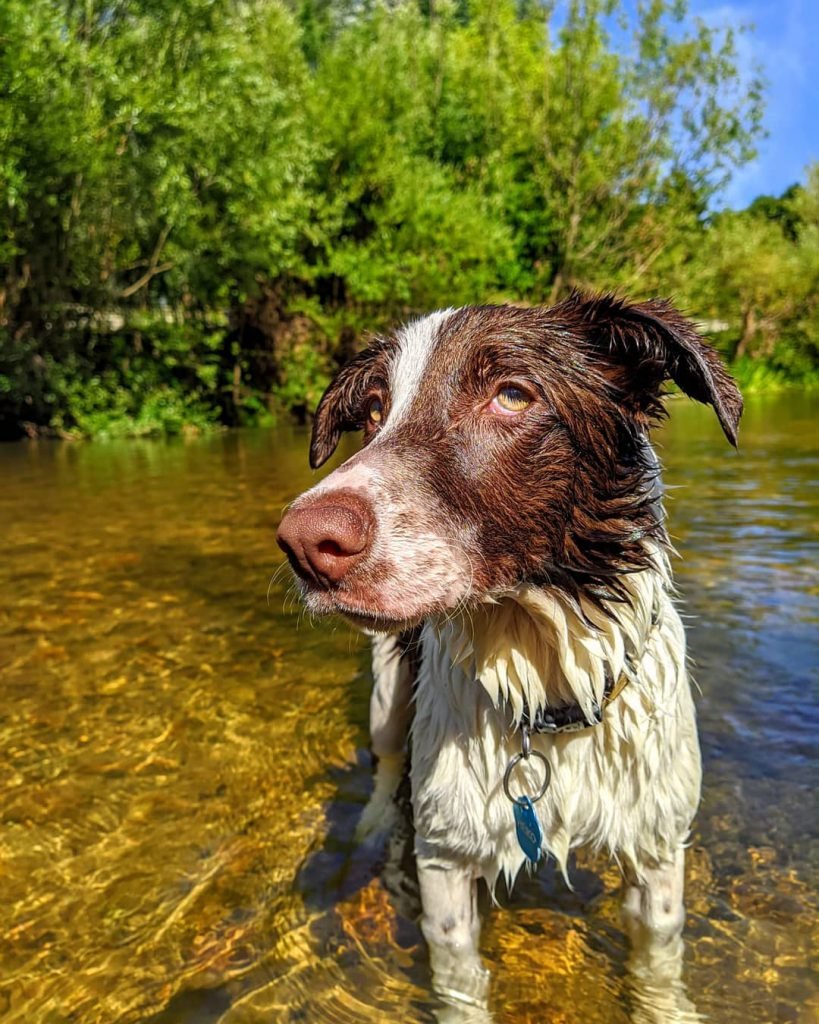
This means there are things a potential owner should consider. A Border Collie should ideally be living in a largish house, and owners must have plenty of time to spare. These dogs are hyperactive, and leaving one alone with nothing to do will lead to a bunch of behaviour problems, such as barking, biting, and destroying the furniture.
When to start training
For basic training, you should start your Collie puppy as soon as possible - that is after it reaches 8 weeks (or two months).

You can start with the home rules, potty and obedience training over the next 5 months. When your Border Collie puppy reaches approximately 7 months, you can move on to teaching more difficult tricks. At this age, your near-adult puppy will be the right age to be able to understand and act on more advanced commands.
Establishing ground rules and a training environment
One essential first step is to expose your Collie puppy to different environments, people, and physical interaction from an early age. If on a farm, he would need to cope with a variety of activity happening all at once. Experiencing a variety of sensations from around 12 weeks onwards, should help your puppy apply his naturally inquisitive temperament.

It is also important to maintain a routine. Border Collies love a regular one. This doesn’t mean that your puppy will have to do the same thing , but that there IS dedicated time for you him to do tasks.
We have already mentioned that, although not typically aggressive animals, these canines will get bored if left with nothing to do. This can make them irritable. Therefore, you will need to give your Border Collie puppy a whole load of exercise each day. He needs to be exposed to the outside world early on and regularly.

Another vital early step is to establish who is in charge, and what the ground rules are. You are the top dog in the house, and your puppy must know this in no uncertain terms. He will naturally behave according to pack hierarchy. As already mentioned, start training your dog to be obedient as soon as he reaches 8 weeks, as well as laying down the ground rules.
Other things to consider
An early training task should be to teach your Border Collie to come when called. This is often known as ‘reliable recall’, and pretty much means that your dog will respond to your call by returning to your side.
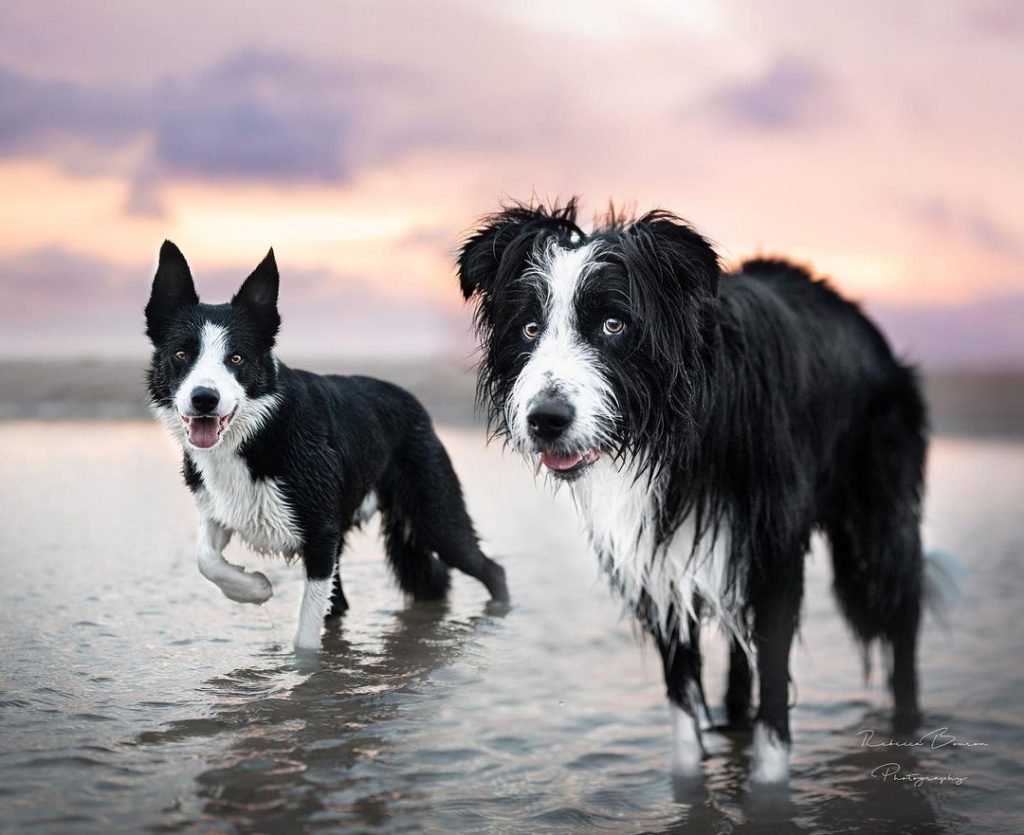
This is a particularly important habit to teach where you want or need your Collie to walk / run free outside, whether for herding or daily exercise.
Remember - keep it consistent. Your puppy will respond well to regular, and firm practice, as well as praise and reward when he deserves it!
Potty training
Once you have you young Border Collie puppy at home, it is time to toilet train him.
You’ve already established that you are leader of the pack, and your young canine knows this. If you hadn’t, he would try and push his luck. Now the fun starts as you start to train him in where to go to the toilet.

He won’t naturally want to do it in the house, but his bladder won’t be so strong. He’ll most likely give you visual or audible signals that he wants to relieve himself. These are often:
- Whining with nose to the ground
- Going around in circles
Once outside give your puppy verbal encouragement. He will probably sniff around in circles and eventually relieve himself. Once he does, praise and reward him.
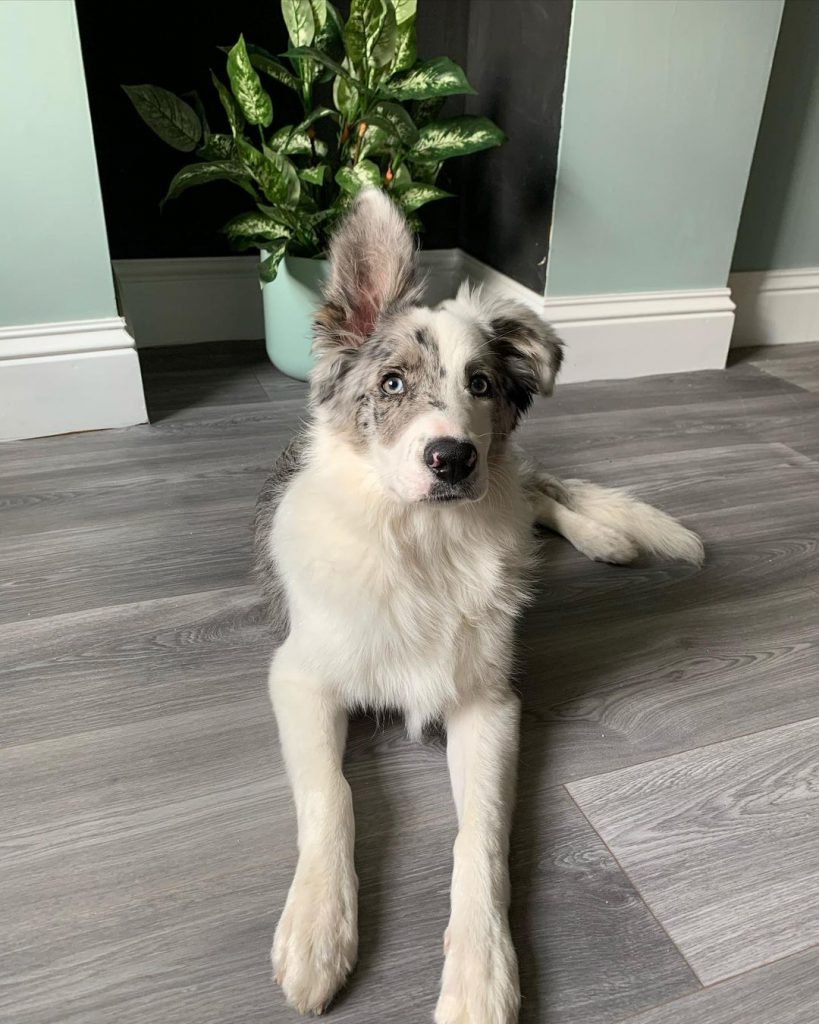
Border Collie obedience training
As we have mentioned, a Border Collie puppy should be taught house rules from an early age. This can be done by:
Teaching words by saying them at the same time as he performs the action - eg ‘heel’, ‘sit’. Keep repeating, and you dog will begin to associate the sound with the action. Border Collies have a finely atuned sense of hearing, and are even able to distinguish different whistle tones!

Show an object and say the name of it at the same time. Keep repeating. Then, put with a group of objects, and ask your puppy to identify it after it hears you say its name.
You will also probably need to deal Border Collie’s herding instincts when they are not required. This breed is naturally disposed to round things up, and that can mean anything - other dogs, passer’s by, people on a daily jog, and even moving vehicles! This can be overcome by giving strong commands, and side tracking your Collie with substitute tasks where possible.
Teaching a young dog new tricks
Once your Border Collie puppy has had a thorough training in obedience, you can start teaching him tricks, moving to more difficult ones once he is more mature.
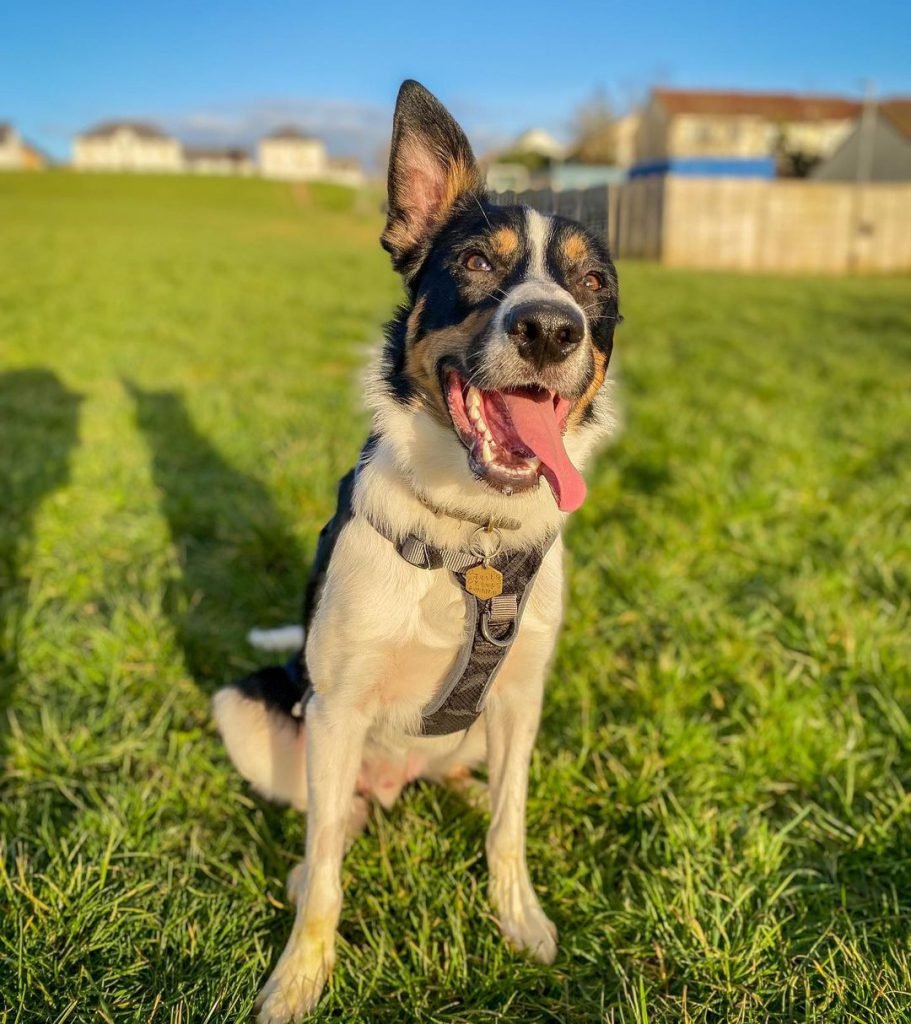
Chasing and retrieving a flying object (e.g. a Frisbee) can help replace the ‘herding ‘need. You can start by rolling the frisbee, and letting your puppy chase it. When he has it in his mouth, command him to ‘fetch’ and then remove from his mouth. Keep doing this until you are sure he will bring it back when you say this word.
You can move to tossing the frisbee longer distances and at different heights, but make sure it isn’t too high.

Holding a hula hoop straight up, you can encourage you puppy to go through it using a treat as a reward and a command word as he does this action. You can then gradually alter the height of the hoop, and then even roll the hoop while he goes through it.
There are a whole lot of other tricks you can teach your Border Collie, as with the right amount of time, he will be able to handle any in the book. What they excel at though, is any training that involves discerning subtle differences. This can often mean they don’t pick up on simple things so easily. If you are training him to ‘sit’ and you raise your hand one time, and not another, your Collie might pick up on that and interpret the commond differently.

Final thoughts on training your Border Collie
While Border Collies have great capacity for distinguishing differences, simple tasks might be harder to teach. For example, if you give a command with your right hand raised one time, and the same command with the your hand down lower, your puppy might interpret this differently.
Your puppy’s intelligence can therefore be double-edged sword. However, time, patience, and understanding will all be important qualities in you, to ensure successful training. If you provide continual mentally stimulating activities and a lot of outdoor exercise, your Border Collie will thrive.
